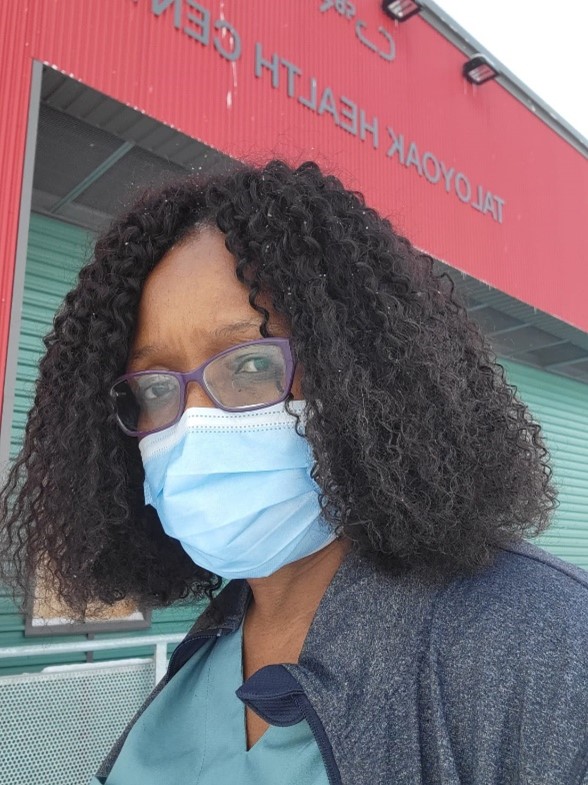Sibu Chanza's Story

A PAGE FROM MY DIARY IN TALOYOAK COMMUNITY
The moment the plane landed at the Taloyoak airport, the sight looked different from what I expected. The community looked like a snow desert. As pleasant as nurse was who came to pick me up at the airport, the conversation was punctuated with moods of silence, as I was preoccupied with thoughts of bringing myself to this new place. The nurse noticed this but continued to drive silently until we arrived at the health centre. Honestly, I was trying to match what I researched on, with the reality before me, weighing if I had made the right decision. As these feelings were racing in my mind, I glanced behind to check if the plane was still there and I decided to get a ride back where I had come from.
Taloyoak health centre is a beautiful state of the art building that I now call home. The staff accommodation has been a positive place to be. As an internationally trained nurse, the tour of the health centre made me feel like I was in my comfort zone. The health centre setup is unique and suitable for the nature of services needed for this great community. The delivery structure of the health care system is like the Zimbabwean one, which enabled me to climatize with the general way the services are rendered quickly. This is called a supermarket approach in a clinical setting, where everything you need is done at the exact location and in the same building. The activities are similar, except for the language and the prevalence of certain common health issues. As a home care nurse, there was so much to be learned about the community, the values and interpretation of health care. I’m happy there is great support from everyone and at various government levels to help with this.
As I drove around and visited each home, one thing that stood out most was the spirit of harmony and unity. This is a family-oriented community and everyone knows everybody. At first, as you navigate around visiting, you wonder how you will remember the house numbers because of the layout of the community. But I learned quickly that if you mention the person’s name, they’re always willing to assist you with directions to the house. The community gets to know your name and your role in their community and offers a friendly greeting each time you are out there.
This is a community of hunters and fishermen, notable by the animal skins hanging outside to dry and their traditional raw Arctic char and caribou menu. “Eat it raw, it will keep you warm” were words that are echoed as an invitation to join in meals. Food is shared in their homes and among the community. No family is left hungry. The animals provide the much-needed food like meat and the animal skin, used for warm clothing in this type of cold weather. Many women are seamstresses who very creative with mitts, kamiiks, amautis, and parkas. They are all worth the value!
In conclusion, Nunavut needs nurses that have big hearts, open minds, a willingness to learn and a desire to embrace cultural values. It is crucial to advocate for patients and not to lose focus on your calling. Supporting at the grassroots level will help build up communities and improve lifestyles. Everyone is invited to advocate and facilitate the changes in health and to work together to provide accessible, affordable health care services to Nunavut communities.